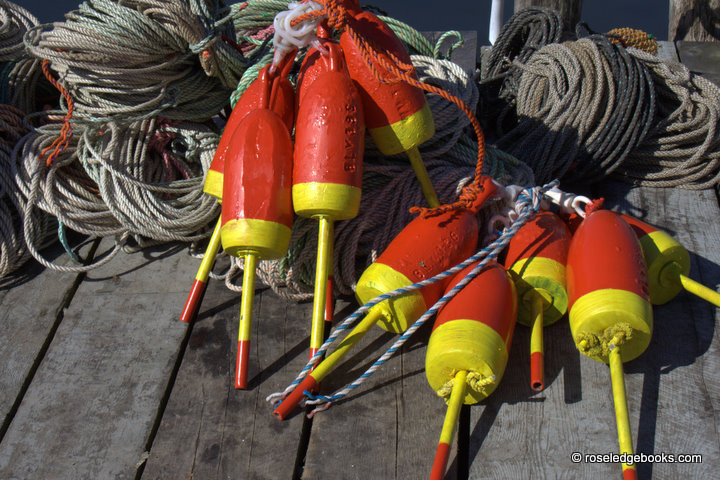Easy days at the winter digs. Spectacular sunrises with reds and blues that incorrectly promised later moisture. Sailors did not have to take warning. Today’s blurry sky may change the tenor of our very warm — well, mild — snowless winter. Millie and I had what will probably be our last wine on the patio last week, at least the last wine wearing a sweater. I wore my latest knitting effort, an “evolving-stripe” pattern which might have been better balanced had I attended to the reds and blues of morning skies. Trying things is fun in knitting as elsewhere, but my goodness it takes a long time to recover stitches when I change my mind.
On to noteworthy newspaper items:
If you many “Downton Abbey” fans who read books also sail, you will find Roseledge Books ready with Charles Todd’s mysteries which are also set during and immediately after World War I, though I don’t recall which titles are on the RB shelf. It’s hard to read or think about those killing trenches of WWI and harder to look at them. I close my eyes.
Soon-to-be IBM ex-President Sam Palmisano tells an interviewer that he kept IBM ahead of the curve by changing direction and helping people get through the mountains of data available to them. To do this, he bought software companies that offered “data mining and analytic services.” He steps down a hero which is fine, but where is the notice that reference librarians have been doing this for a hundred-plus years? Please recall with fondness the librarian who shepherded you, other researchers and the generally curious through the mountains of information available to any and all in libraries.
An aside: James Webb’s Unobtrusive Measures is a fun read and good way to recall these earlier mountains of data in libraries, some of which he called “running records.” Remember the study, using water and electricity records, that concluded the Brits used the bathroom during the commercials on television? Maybe that’s why their commercials are so often so good. But I digress.
Oh librarians appreciate the occasional understated mention in an obscure appendix or acknowledgement, sure, but in the bigger picture, they have long made available organized, accessible information to anyone who wanted it. And they know well the often unspoken rules underlying which sources to use when. Face it; in today’s world the problem isn’t finding ten sources; it’s knowing which of 250 options to choose. Clearly librarians needed to understand algorithms or befriend someone who did because for all of today’s access, way too few users know what makes a source good rather than just easy to find.
So it is good news when librarians and users make a move to improve the quality of cited sources. In this spirit, cheers to Wikipedia attenders and library providers when NYPL’s Performing Arts Library hosted an “editathon” for amateur digital archivists and musical theater devotees. Everybody wins. Wikipedia’s musical-theater-related entries use better evidence to make their points and the treasures in these Special Collections get visibility and a more explicit purpose. What fun! I wish I could have been there or that more libraries offered similar search events.
I loved Umberto Eco’s An Infinity of Lists for many reasons, but one big reason was that it included the contents of and rationales for many really strange collections. Suddenly NYPL’s Special Collections had forebears.
Time to return to the Friday NYT crossword puzzle and decide if the constructor is a seasoned liberal arts graduate with a modest interest in sports whose references, especially slang references, I stand a chance of knowing.


